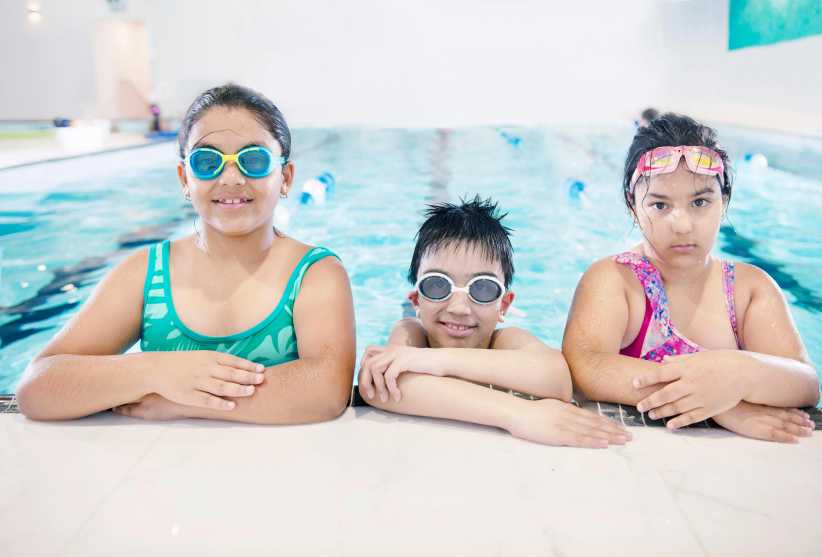For New York City parents,
navigating a school system that serves more than a million children can be
complicated and overwhelming. For parents of a child with special needs, the
process is even more daunting, with a host of different options to consider, acronyms
to become familiar with (like CSE, Committee on Special
Education; IEPS, Individualized Education Plans and NPS, nonpublic schools, to name a few)
and many decisions to make along the way. To help parents better understand the
special education landscape in the city, we spoke with Laurie Dubos, co-author
of “A Parent’s Guide To Special
Education in New York City and the Metropolitan Area.” Dubos, who has
worked in the field of special education for over 30 years, shares how a
child’s interest in play can indicate developmental delays, what parents should
consider first and what kinds of schools may be the best fit for their child.
What are some early signs that a child
might have a learning disability or developmental delay?
Depending upon the child and the
disability, it can manifest itself from birth. You have some children who you
automatically know are going to need special services, such as a child with
Down syndrome or a child who has cerebral palsy. Signs that a child has autism,
however, may not manifest themselves before the child is two years old. The
first indication is often the lack of language. If a child is not speaking by
the age of two, or he’s not using simple sentences, that’s a clear delay for
most children. There are other criteria such as eye contact, hand slapping or
twirling that are associated with autism. But with children who might be on the
autism spectrum who are very mild, you might not catch them until later.
Along with language, you have play skills. A red flag would be if a child needs
an adult to help them play, or a child with no interest in playing with other
kids. Language and play often go together. Children can’t play if they don’t
have the language of their peers.
What should parents do if they suspect
their child might have a learning disability?
I think parents know their children best.
It doesn’t hurt to bring your child to your pediatrician or a specialist. Even
if it comes out that they don’t have a disability, it helps parents to
alleviate those fears. There are too many parents out there who think, “If only
I had done something earlier.” When the child is the first born, young parents
really don’t know what to expect. They don’t have an understanding of child
development. They don’t know what a two-year-old is supposed to be doing or
what an 18-month-old is supposed to be doing. Often times a parent will say,
“Once I had my second child I realized how delayed my first child was.”
What’s the next step for parents after a
child is diagnosed with a learning disorder or a disability?
The next step would be to contact the
school district to make a referral for their child to be evaluated, and these
evaluations are free. Some parents will go the private school route, but if
they’re looking for funding, you have to go through the public school first.
What’s most important to look at when
considering a public school?
You want to see what kinds of programs are
available for the child. Most neighborhood schools have a resource room where
children spend part of their day with a special educator. I would look for very
good scores in terms of students’ achievement, as well as the experience of the
teachers and how long they’ve been a part of that community.
What happens when there isn’t a public school that meets the needs of a
child?
Parents can go through due process. There
are enough non-public schools (NPS) who work closely with the Department of
Education when they can’t provide an appropriate education in the community
public schools. These private schools are licensed by the state and the
Department of Education and can provide tuition and place children in those
schools.
Is that a difficult process?
It becomes contentious if the Department of Education believes that they
have a place to send the child and the parent disagrees. If the DOE feels
strongly that they can provide a free, appropriate education for a student and
the parents are insistent on a private school, it can be very difficult, and
often parents will have to obtain some kind of legal representation. Most of
the parents I’ve worked with had children with complicated learning issues.
Most of them have gotten in [to the private school] but it takes someone who
really can advocate for their child and understands the system.
So parents should go through the process before looking into an NPS?
The problem if you do that is that there
often times won’t be a place for the child at the [private] school. Parents
should look into private schools and at the same time start the process of
working with the DOE to determine whether they do have a program that is
appropriate for their child. If parents really believe their child belongs in a
private school setting, I recommend they do that simultaneously, because if
they wait until they finish the process with the DOE, there often will not be
openings in that school.
What should parents consider when choosing a private school?
Look at the kind of curriculum they use.
Most of the schools are trying to use similar curriculum that other schools are
using so that a child doesn’t miss out for their grade and age level. Look to
make sure that children at the school have similar learning issues as your
child. Also, in the book, we talked about the fact that it’s not just a place
for the child, but it’s a place for the family.
What’s the most important piece of advice
you have for parents who are navigating the special needs arena?
Educate yourself. Resources for Children
with Special Needs (resourcesnyc.org) is a wonderful
agency that offers a lot of workshops and trainings. Go out and visit the
schools—public and private—so you’re aware of what’s available for your child.
There are also lots of ways to connect with other parents online; try to connect
to those who are working with the school system and who are working within the
area you’re most interested in. I’d recommend that parents get involved so they
don’t feel so isolated.
Laurie Dubos is co-author of “A Parent’s Guide To Special
Education in New York City and the Metropolitan Area.”





















